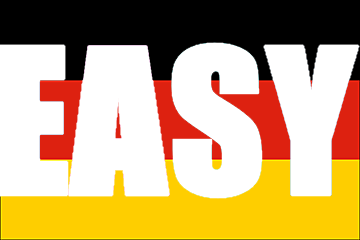| ICFCY-Code | Title | Description |
|
|
d1
|
CHAPTER 1 LEARNING AND APPLYING KNOWLEDGE |
This chapter is about learning, applying the knowledge that is learned, thinking, solving problems, and making decisions. |
|
|
|
Basic learning (d130-d159) |
|

|
d130
|
Copying |
Imitating or mimicking as a basic component of learning, such as copying, repeating a facial expression, a gesture, a sound or the letters of an alphabet. |

|
d131
|
Learning through actions with objects |
Learning through simple actions on a single object, two or more objects, symbolic and pretend play, such as in hitting an object, banging blocks and playing with dolls or cars. |

|
d1310
|
Learning through simple actions with a single object |
Simple actions on a single object or toy by manipulating, banging, moving, dropping, etc. |

|
d1311
|
Learning through actions by relating two or more objects |
Simple actions relating two or more objects, toys or other materials without regard for the specific features of the objects, toys or materials. |

|
d1312
|
Learning through actions by relating two or more objects with regard to specific features |
Actions relating two or more objects, toys or materials with regard to specific features, e.g. lid on box, cup on saucer. |

|
d1313
|
Learning through symbolic play |
Actions relating objects, toys or materials symbolically, such as feeding or dressing for a toy animal or doll. |

|
d1314
|
Learning through pretend play |
Actions involving pretence, substituting a novel object, body part or body movement to enact a situation or event, such as pretending that a block of wood is a car, pretending that a rolled up cloth is a doll. |

|
d1318
|
Learning through actions, other specified |
|

|
d1319
|
Learning through actions, unspecified |
|

|
d1330
|
Acquiring single words or meaningful symbols |
Learning words or meaningful symbols, such as graphic or manual signs or symbols. |

|
d1331
|
Combining words into phrases |
Learning to combine words into phrases. |

|
d1332
|
Acquiring syntax |
Learning to produce appropriately constructed sentences or set of sentences. |

|
d135
|
Rehearsing |
Repeating a sequence of events or symbols as a basic component of learning, such as counting by tens or practising the recitation of a rhyme with gestures, counting by tens or practising the recitation of a poem. |

|
d1370
|
Acquiring basic concepts |
Learning to use such concepts as size, form, quantity, length, same, opposite. |

|
d1371
|
Acquiring complex concepts |
Learning to use such concepts as classification, grouping, reversibility, seriation. |

|
d140
|
Learning to read |
Developing the competence to read written material (including Braille and other symbols) with fluency and accuracy, such as recognizing characters and alphabets, sounding out written words with correct pronunciation, and understanding words and phrases. |

|
d1400
|
Acquiring skills to recognize symbols including figures, icons, characters, alphabet letters and words |
Learning elementary actions of deciphering letters and symbols, characters, and letters and words. |

|
d1401
|
Acquiring skills to sound out written words |
Learning elementary actions of sounding out letters, symbols and words. |

|
d1402
|
Acquiring skills to understand written words and phrases |
Learning elementary actions to grasp the meaning of written words and texts. |

|
d1408
|
Learning to read, other specified |
|

|
d1409
|
Learning to read, unspecified |
|

|
d145
|
Learning to write |
Developing the competence to produce symbols that represent sounds, words or phrases in order to convey meaning (including Braille writing and other symbols), such as spelling effectively and using correct grammar. |

|
d1450
|
Acquiring skills to use writing implements |
Learning elementary actions of writing down symbols or letters, such as holding a pencil, chalk or brush, writing a character or a symbol on a of piece paper, using a brailler, keyboard or peripheral device (mouse). |

|
d1451
|
Acquiring skills to write symbols, characters and alphabet |
Learning elementary skills to transpose a sounded or a morpheme into a symbol or a character grapheme. |

|
d1452
|
Acquiring skills to write words and phrases |
Learning elementary skills to transpose spoken words or ideas into written words or phrases. |

|
d1458
|
Learning to write, other specified |
|

|
d1459
|
Learning to write, unspecified |
|

|
d150
|
Learning to calculate |
Developing the competence to manipulate numbers and perform simple and complex mathematical operations, such as using mathematical signs for addition and subtraction and applying the correct mathematical operation to a problem. |

|
d1500
|
Acquiring skills to recognize numerals, arithmetic signs and symbols |
Learning elementary skills to recognize and use numbers, arithmetic signs and symbols. |

|
d1501
|
Acquiring skills of numeracy such as counting and ordering |
Learning elementary skills to acquire the concept of numeracy and concepts of the sets. |

|
d1502
|
Acquiring skills in using basic operations |
Learning arithmetic skills to use operations of addition, subtraction, multiplication. |

|
d1508
|
Learning to calculate, other specified |
|

|
d1509
|
Learning to calculate, unspecified |
|

|
d1550
|
Acquiring basic skills |
Learning elementary, purposeful actions, such as learning to wave in response, to use simple tools such as pencils and eating utensils. |

|
d1551
|
Acquiring complex skills |
Learning integrated sets of actions so as to follow rules and to sequence and coordinate one's movements, such as learning to play games (e.g. football or chess) and to use a building tool. |

|
d159
|
Basic learning, other specified and unspecified |
|

|
d198
|
Learning and applying knowledge, other specified |
|

|
d199
|
Learning and applying knowledge, unspecified |
|

|
d660
|
Assisting others |
Assisting household members and others with their learning, communicating, self-care, movement, within the house or outside; being concerned about, or drawing other's attention to, the well-being of household members and others. |

|
d810
|
Informal education |
Learning at home or in some other non-institutional setting, such as acquiring non-academic (e.g. crafts) or academic (e.g. home-schooling) skills from parents or family member in home or community. |

|
d815
|
Preschool education |
Learning at an initial level of organized instruction in the home or in the community designed primarily to introduce a child to a school-type environment and prepare the child for compulsory education, such as by acquiring skills in a day-care or similar setting in preparation for school (e.g. educational services provided in the home or in community settings designed to promote health and cognitive, motor, language and social development and readiness skills for formal education). |

|
d820
|
School education |
Gaining admission to school, education; engaging in all school-related responsibilities and privileges; learning the course material, subjects and other curriculum requirements in a primary or secondary education programme, including attending school regularly; working cooperatively with other students, taking direction from teachers, organizing, studying and completing assigned tasks and projects, and advancing to other stages of education. |

|
d825
|
Vocational training |
Engaging in all activities of a vocational programme and learning the curriculum material in preparation for employment in a trade, job or profession. |

|
d830
|
Higher education |
Engaging in the activities of advanced educational programmes in universities, colleges and professional schools and learning all aspects of the curriculum required for degrees, diplomas, certificates and other accreditations, such as completing a university bachelor's or master's course of study, medical school or other professional school. |






 =Select (and add) this code
=Select (and add) this code  Click on a code to expand the branch
Click on a code to expand the branch 




















































